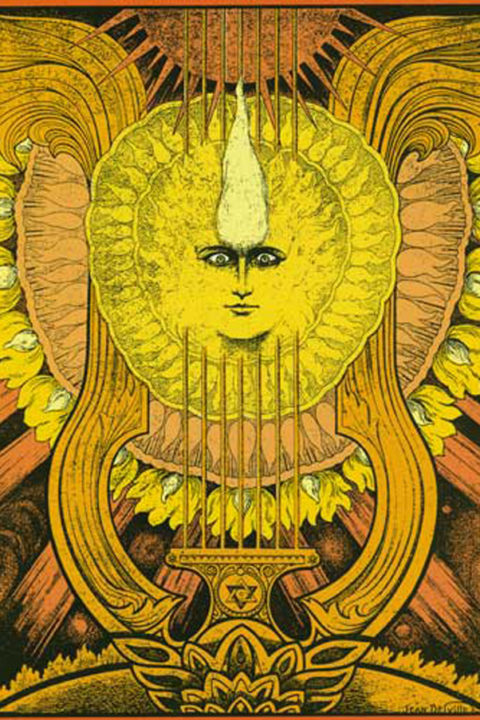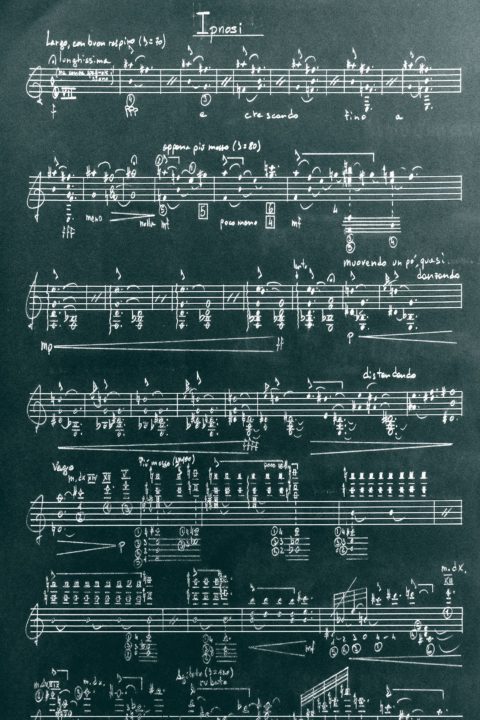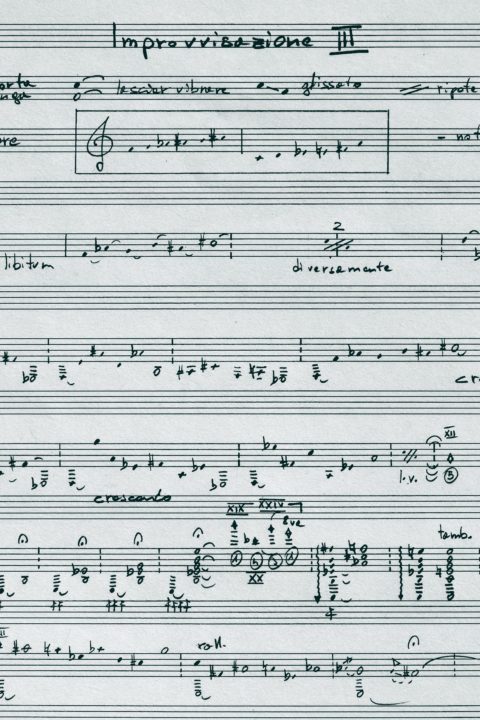POTENTIALITY AND ACTUALITY

REWORKING
28 November 2005
MUSIC FOR THE CONNOISSEURS
11 December 2005POTENTIALITY AND ACTUALITY
The moment in which music mainly reveals all its power is that small instant which elapses between the end of silence and the act of sound.
I meet Josue’ in the chat room and I submit the above sentence.
Josue’ writes: A while ago, somewhere, I wrote that music is the moment in which you stop ‘doing’ because only then can you listen. It is exactly the opposite! But is music expressing oneself or perceiving oneself? Or maybe alternating between the two? Maybe we should go back to the old rule of the world of opposites that in music is tension and relaxation.
Marco De Biasi writes: Perhaps it is better to pinpoint and analyse to fully understand if we agree with each other or not.
You are talking about what music is or could be whilst I am talking about one of the things that music does.
In your case it depends on what you do or listen to. If by ‘doing’ you mean playing, then at the moment you stop playing, in order to still listen to some music, you have to refer yourself absolutely to another kind of reality, that is not merely perceptible, and to another kind of music that you don’t listen to with your ears but with your heart. In this way you will be able to pass from a dimension in which music manifests itself in a physical way as an expression of nature’s will, to a dimension in which you could understand, if you were really able to hear, the same will, the heart of the world. Things are different if, on the other hand, you mean that to stop ‘doing’ is only the mechanical use of the fingers (i.e. to stop moving the fingers).
In this case we still refer to the same object: the music which we are playing. But I seem to understand that to stop ‘doing’ refers to transcend the act of playing and to just turn one’s attention to the produced object. In this case we enter into the heart of nature’s will and can feel part of this will because Man is part of nature. In relation to what I said, I meant to talk about silence and sound, about black and white. Silence is like a state of gestation in which the sound is prepared, is music in potentiality.
All the energy that we are able to channel at the moment that precedes sound, will turn into music in a way which is directly proportionate to the combination of quantity and quality of the energy itself. At the moment of the ‘birth’, in other words, when the sound has been produced, all the accumulated energy is resolved in the same moment in which the sound has been emitted. What remains is its movement that brings it to the listener. If the energy given to this movement is positive and pertinent then the newborn being will grow well, will bear good fruit and will go far. If not, its movements will become awkward and will prevent it from reaching its destination. But as what we are interested in about music is not the act of its gestation nor the moment of its death, but its birth and life that flows in it, then we have to turn our gaze to where its power emanates with greater evidence.
This power expresses itself in the tension between its potentiality and actuality. The tension lives in the instance in which the potentiality becomes actuality, this tension lives in the enjoyment of the produced sound. Looking at the question whether music is an expression of oneself or helps to perceive oneself, I believe that the question is badly phrased. Once we perceive ourselves and we are able to listen to ourselves from the inside then we enter into the ideal condition to be able to perceive music. The degree of consciousness that allows us to perceive ourselves determines also the way in which we are able to express the music. When we play, we do not play music, but we filter the music that we have to play, through our sensitivity. So we obviously express a part of ourselves.



